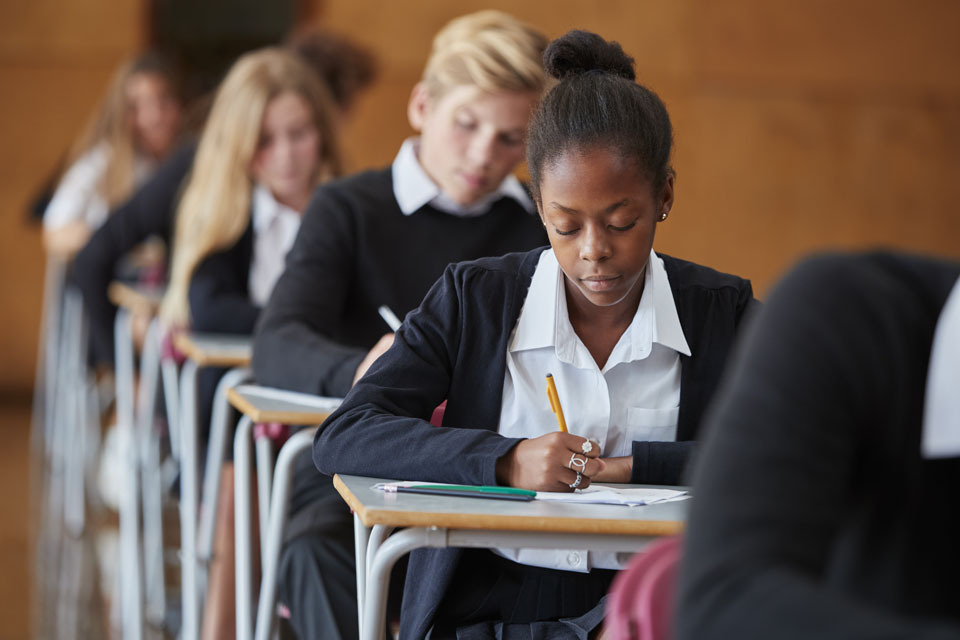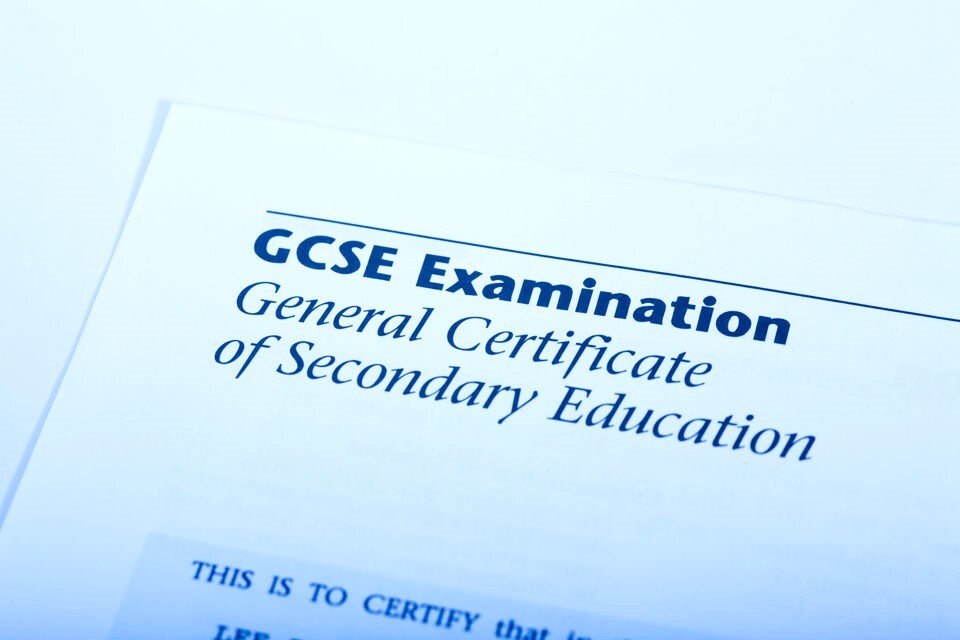What you need to know before your exams
Published 20 November 2024
Applies to England
Arrangements for exams and assessments

Your school or college enters you for the exams and assessments for the qualifications you are taking.
If you are unsure about any aspects of the exams or assessments you are entered for, you should speak to your school or college.
As a private candidate, how do I register for exams and assessments?
If you are a private candidate (so you do not go to school or college), you will need to register, as soon as possible, at a school or college or other exam centre to sit your exams.
If you are looking for somewhere to take your GCSE, AS and A level exams, you or your parents or carers can contact any school, college or other exam centre to ask whether they offer entries for private candidates. Not all schools and colleges accept entries for private candidates.
If you need Reasonable Adjustments or access arrangements you will need to discuss this with the school, college or the exam centre where you will take your exams.
For GCSE, AS and A level exams, JCQ has a list of schools and colleges that accept exam entries for private candidates. This list is updated at the end of each calendar year.
If you are a private candidate studying for a VTQ, you should contact your awarding organisation to understand your options for assessment.
When are my exams?

GCSE, AS and A level exam dates
GCSE, AS and A level exams will be held between 8 May and 24 June 2025. You must be available for the whole of the exam period. Exam board timetables for the 2025 summer exam series of GCSEs, AS and A levels are available on the Joint Council for Qualifications website.
The exam timetable contains 2 contingency sessions on the afternoon of 11 June and all day on 25 June 2025. You must be available at these times. These sessions would be used in the unlikely event that an exam had to be moved nationally because it could not take place when planned. These sessions cannot be used to reschedule an exam that you have missed. If an exam has to be moved to one of these sessions, your school or college will tell you.
In GCSE English language and GCSE mathematics, exams are also available in November, but only for students who are aged 16 or above on 31 August of that year. Exam board timetables for the 2025 November exam series of GCSEs will be available on the JCQ website.
VTQ exams and assessments
Assessment dates for Vocational and Technical Qualifications (VTQs) and T Levels vary depending on the qualification, with assessments throughout the year. Dates will be available on awarding organisations’ websites. Your school or college will tell you when your exams or assessments are scheduled.
Exam timetable
Your school or college will give you your individual timetable for exams and assessments. You should check this carefully so that you don’t miss an exam or assessment. If you think there are mistakes in your timetable or if you are not sure about the timing of any exams or assessments, check with your school or college.
For many qualifications, including GCSE, AS and A levels, there will not be another opportunity to sit the exam or assessment until the following year. So, if you miss the exam because, for example, you forget about it, you will not receive any marks from it and will not be able to take it on a different day.
For some VTQs, if you miss an assessment, it may be possible to take the assessment at a later point in the year. Your school or college will be able to advise you.
If you have missed an exam or assessment, you should speak to your school or college as soon as possible.
What happens if exams were cancelled?
It is very unlikely that formal exams and assessments would be cancelled but, just in case something does happen, there are arrangements in place.
Ofqual has asked schools and colleges to gather evidence of your work during the year that could be used to determine grades for GCSE, AS and A levels, Project Qualifications and Advanced Extension Awards. This evidence would only be used in the unlikely event that national exams and assessments could not go ahead as planned. Schools and colleges have been told that this evidence should come from assessments that students normally take, for example, mock exams. Your teachers should tell you when you are taking assessments that could be used as evidence, but you should just approach those assessments as you normally would.
For qualifications used alongside or instead of GCSEs, AS and A levels, Ofqual has asked awarding organisations to decide if schools and colleges need to gather evidence to for grades. Many VTQs are modular and often have a high proportion of non-exam (internal) assessment. This means that evidence will already be generated during your course of study and so no additional evidence is needed.
For other qualifications, including those assessed mainly through exams (such as T Levels), awarding organisations may decide that evidence needs to be collected. If this is the case, awarding organisations will provide guidance to your school or college. As with GCSEs, AS and A levels, your teachers should tell you when you are taking assessments that could be used as evidence.
Students should expect that exams and assessments will go ahead. Further information will be provided to schools and colleges in the unlikely event that exams could not go ahead as planned.
Private candidates
If you are a private candidate and have already registered to take your exams at a school or college, you might want that school or college to assess you during the academic year, alongside their students, in line with the published resilience guidance. The school or college may agree to do so, although they would need to make sure the assessments only cover content that you had studied. Alternatively, you could be assessed only if government considers that national exams can’t take place.
If the government considered that national exams could not take place, the Department for Education would explore ways to encourage schools and colleges to work with private candidates.
What is the difference between a foundation and higher paper?

Some GCSE subjects have 2 tiers of entry - foundation and higher. The subjects with tiers of entry are:
- maths
- combined science
- physics
- chemistry
- biology
- statistics
- modern foreign languages
Your school or college decides whether to enter you for foundation or higher tier.
If you are a private candidate, please discuss which tier you wish to be entered for with the school or college that you have registered with.
Foundation tier: students may be awarded grades 5 to 1 (5-5 to 1-1 in combined science).
Higher tier: students may be awarded grades 9 to 4 (9-9 to 4-4 in combined science). Students who just miss a grade 4 (4-4 for combined science) may be awarded a grade 3 (4-3 for combined science).
If you do not get enough marks to get a grade, you will receive a ‘U’.
Before your exams you should make sure you know which tier you are taking so that you can prepare for, and take, the correct exam paper.
Support materials for GCSE mathematics, physics and combined science
The Department for Education (DfE) has confirmed that students taking exams in 2025, 2026 and 2027 will not be expected to memorise all the usual formulae and equations for GCSE mathematics, physics and combined science.
You will be provided with support materials in the form of formulae and equation sheets for GCSE mathematics, physics and combined science exams in 2025, 2026 and 2027. The support materials will set out the formulae and equations that students must memorise in a normal year, as set out in the DfE’s subject content.
Exam boards will publish the formulae and equation sheets for the exams in 2025 in December 2024 so that you may become familiar with them before your exams. These sheets will also be included with your exam papers.
The formulae and equation sheets to be used in the 2025 exams will be the same as those used for exams in 2024.
What is an access arrangement?
Access arrangements is a term often used by awarding organisations, schools and colleges to describe arrangements that help students to access an assessment, without changing the demands of the assessment. There are 2 categories of access arrangements:
-
Reasonable Adjustments: changes made to an assessment or to the way an assessment is carried out that reduce or remove a disadvantage caused by a student’s disability.
-
Special Consideration: changes made to an assessment or to the way an assessment is carried out when a student has experienced a temporary illness or injury (such as, needing a scribe for a broken arm), or some other event outside of the student’s control at the time of the assessment.
Can I get help for exams and assessments, if I am a disabled student?
Reasonable Adjustments, often called access arrangements, are changes made to an exam or assessment, or to the way an exam or assessment is carried out, so that disabled students can demonstrate what they know, understand and can do. The exam must still test the same knowledge, skills and understanding for that qualification. Disabled students are entitled to Reasonable Adjustments under the Equality Act 2010.
Your school or college will arrange any Reasonable Adjustments or access arrangements. Some examples of arrangements are:
- extra time to complete exams or assessments
- changes to exam papers, for example, large print or braille
- help with specific tasks, for example, another person might read questions to you or write your dictated answers
Different Reasonable Adjustments are available depending on the needs of individual students. If you think you need a Reasonable Adjustment or access arrangement, it is important that you speak to your school or college as soon as possible.
Your school or college will have someone who organises these arrangements, a special educational needs and disabilities co-ordinator (SENDCo) in schools, and a named person in colleges. They can give you more information about Reasonable Adjustments and whether they apply to you.
Where, in exceptional circumstances, your school or college cannot make suitable Reasonable Adjustments so that you can take your examinations, the exam board may be able to consider alternative assessment arrangements. You should speak to your school or college as soon as possible so they can discuss your individual circumstances with the relevant awarding organisation. Only the relevant awarding organisation can decide whether to consider alternative assessment arrangements based on individual student circumstances.
You can find more information about Reasonable Adjustments and access arrangements for GCSEs, AS, A levels and some VTQs in this JCQ guidance. Awarding organisations offering other VTQ and Technical Qualifications within T levels provide information about Reasonable Adjustments and access arrangements on their websites.
If you are a private candidate, please be aware that JCQ publishes guidance on access arrangements for centres accepting private candidates.

